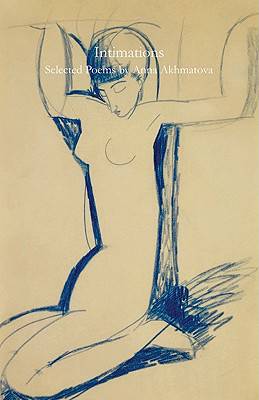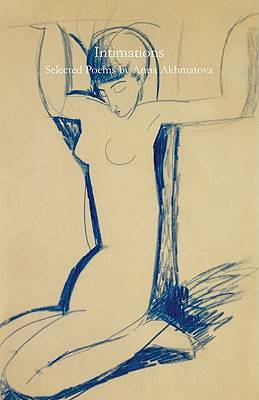
Door een staking bij bpost kan je online bestelling op dit moment iets langer onderweg zijn dan voorzien. Dringend iets nodig? Onze winkels ontvangen jou met open armen!
- Afhalen na 1 uur in een winkel met voorraad
- Gratis thuislevering in België vanaf € 30
- Ruim aanbod met 7 miljoen producten
Door een staking bij bpost kan je online bestelling op dit moment iets langer onderweg zijn dan voorzien. Dringend iets nodig? Onze winkels ontvangen jou met open armen!
- Afhalen na 1 uur in een winkel met voorraad
- Gratis thuislevering in België vanaf € 30
- Ruim aanbod met 7 miljoen producten
Zoeken
€ 31,95
+ 63 punten
Omschrijving
Distributed by the University of Nebraska Press for Whale and Star Press
Anna Akhmatova (1889-1966) was a skilled love poet who, through no choice of her own, became a witness to mass violence, a widely recognized exemplar of endurance and moral strength, and finally a symbol of Russian national resilience. At the start of her career, during the final years of the Russian Empire, Akhmatova was a cultural celebrity who fascinated a generation not only with her poetry but also with the drama that she created around herself.
After the revolution of 1917, she was attacked as a decadent bourgeois author and driven into silence and obscurity. Living in relative poverty, with her family and friends repeatedly arrested and harassed, and she herself publicly cursed by the representatives of the state, Akhmatova survived the darkest decades of Soviet history. Near the end of her life, when timorous cultural bureaucrats allowed her to reemerge as a public figure, she revealed to readers that even if the "collective" had rejected her as an unworthy member she had continued to write poetry reflecting the trials and calamities of Soviet men and women with greater truth and moral authority than any official poet could attain.
Anna Akhmatova (1889-1966) was a skilled love poet who, through no choice of her own, became a witness to mass violence, a widely recognized exemplar of endurance and moral strength, and finally a symbol of Russian national resilience. At the start of her career, during the final years of the Russian Empire, Akhmatova was a cultural celebrity who fascinated a generation not only with her poetry but also with the drama that she created around herself.
After the revolution of 1917, she was attacked as a decadent bourgeois author and driven into silence and obscurity. Living in relative poverty, with her family and friends repeatedly arrested and harassed, and she herself publicly cursed by the representatives of the state, Akhmatova survived the darkest decades of Soviet history. Near the end of her life, when timorous cultural bureaucrats allowed her to reemerge as a public figure, she revealed to readers that even if the "collective" had rejected her as an unworthy member she had continued to write poetry reflecting the trials and calamities of Soviet men and women with greater truth and moral authority than any official poet could attain.
Specificaties
Betrokkenen
- Auteur(s):
- Uitgeverij:
Inhoud
- Aantal bladzijden:
- 176
- Taal:
- Engels
- Reeks:
- Reeksnummer:
- nr. 4
Eigenschappen
- Productcode (EAN):
- 9780979975233
- Verschijningsdatum:
- 1/06/2010
- Uitvoering:
- Paperback
- Formaat:
- Trade paperback (VS)
- Afmetingen:
- 141 mm x 218 mm
- Gewicht:
- 222 g

Alleen bij Standaard Boekhandel
+ 63 punten op je klantenkaart van Standaard Boekhandel
Beoordelingen
We publiceren alleen reviews die voldoen aan de voorwaarden voor reviews. Bekijk onze voorwaarden voor reviews.











